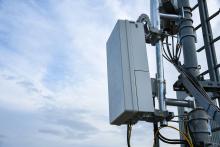"Although a lot of marketing muscle will continue to promote this concept in 2004, real investments that contain defining elements of the utility-computing model -- virtualized systems, applications shared among businesses, real-time usage-based pricing and (utimately) real-time adaptation of IT systems to changes in business events -- will be modes, and largely focused on infrastructure management, not on solving business problems," IDC said.
Adoption of radio-frequency identification (RFID) tags on products moving through supply chains will stall, despite mandates from the world's largest retailer, Wal-Mart, and the U.S. Department of Defense.
"By year-end, it will be obvious that it will take more than mandates from Wal-Mart or the DoD to drive the kind of money and time investment necessary to deploy the tagging infrastructure, the sensor technology, the operational procedures to use the sensors, and the applications to make sense of the data," IDC said. "In addition, RFID technology still has some serious practical issues, including poor tag reliability, many sources of signal interference, and slow standards development."
IDC predicts that fewer than half of Wal-Mart's top suppliers will have much more than early-stage pilots running by the end of 2004, and that the retailer, along with the DoD, will nudge the timeline for adoption and/or narrow the scope of their mandates.
On the adoption of Wi-Fi in the enterprise, the analyst firm expects businesses to begin using the standardized technology in wireless local area networks set up in small and temporary offices. Large office use will be limited to conference rooms and common areas. Vendors are expected to continue having trouble making a coherent business case for using the technology in office environments that already have a wired infrastructure.








